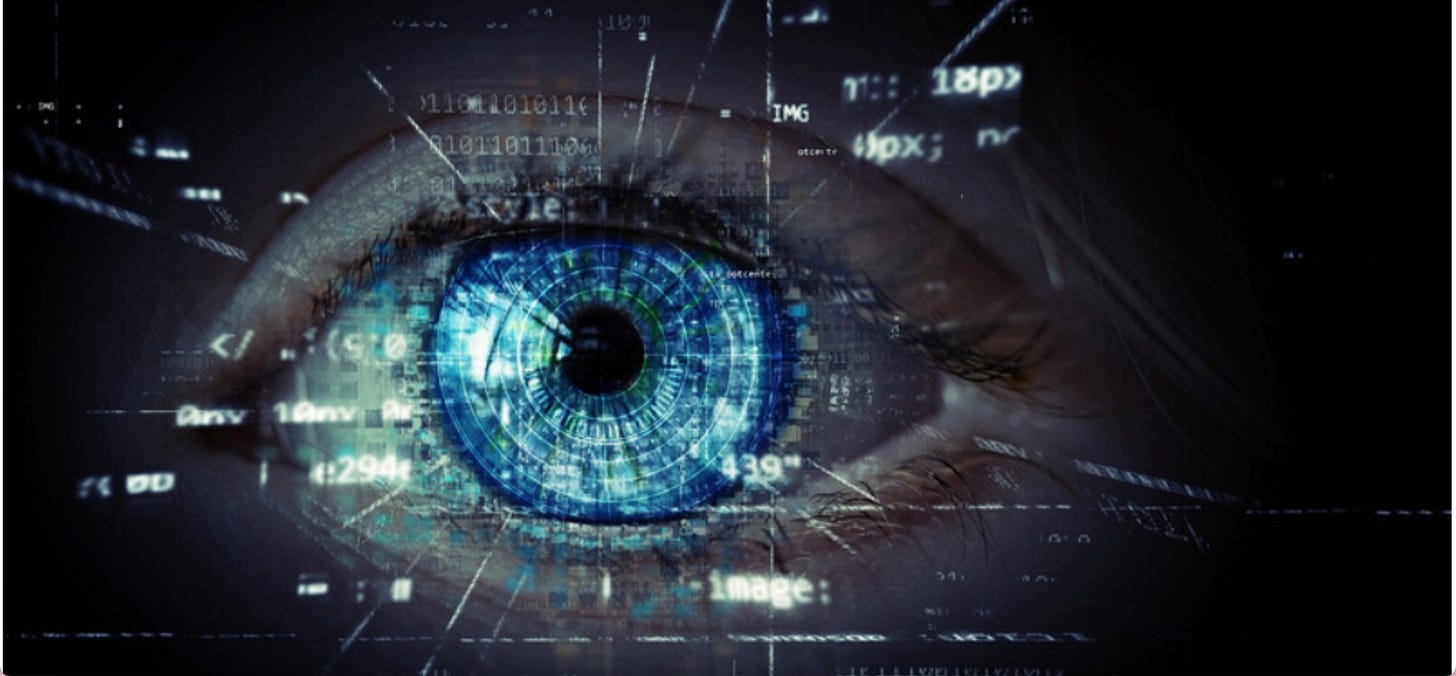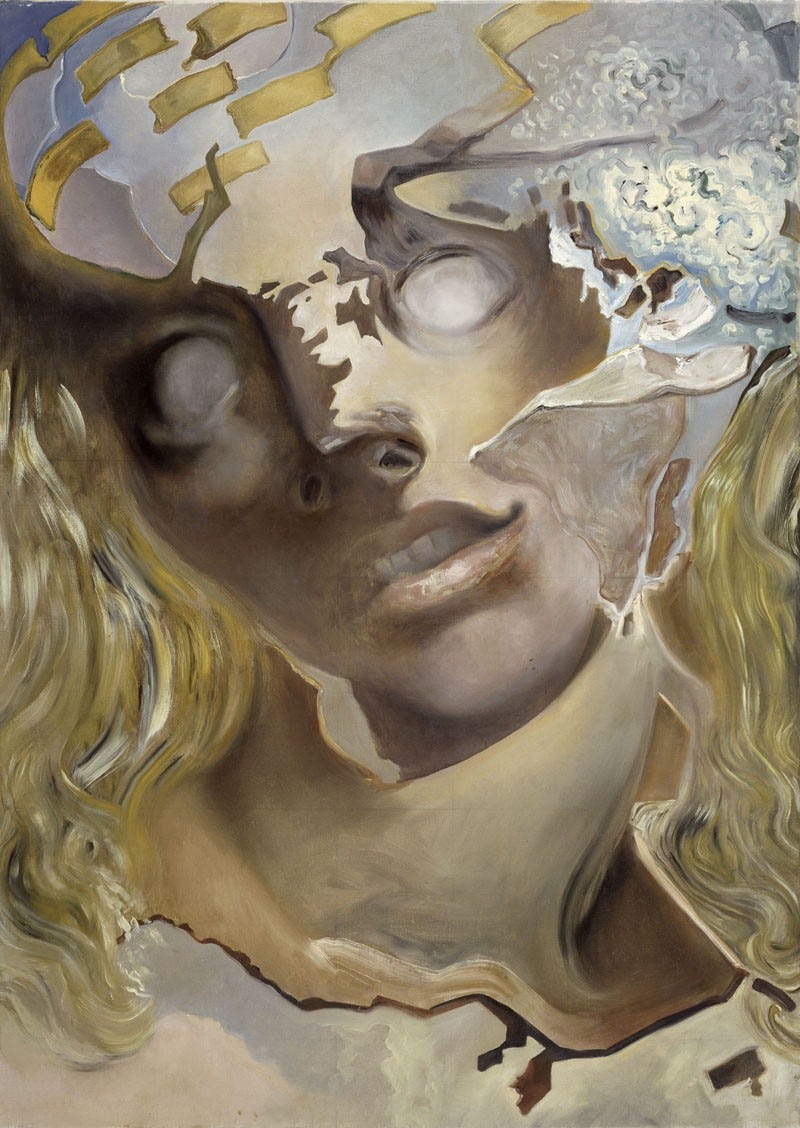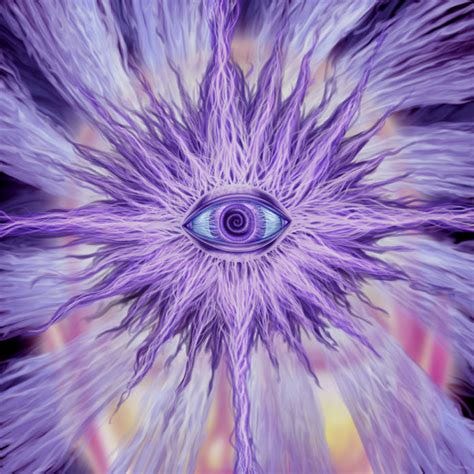A Scientific Method for Developing Intuition | Apocalypse Survival Kit
Intuition may be the most useful psychic power of all.
In an earlier post, I urged people to develop their psychic and psionic abilities (a.k.a. siddhis) as a means of surviving the apocalypse. Then I wrote a list of siddhis to give people an idea of how many ways they can prepare and protect themselves. The diversity of the list allows people with different resonances (elemental balances, astrological placements, behavioral tendencies) to develop the siddhis they best “vibe with,” instead of wasting their time trying to develop ones that are beyond their current capability. (Note the double-meaning of “current.”)
Now I will write a guide to develop what I personally consider to be the most useful and universal siddhi of all: intuition.
Intuition is claircognizance or clear-knowing. It’s the ability to skip past observation, evidence, and proof to get straight to the truth. Being able to obtain truth without the limitations posed by time, information and analysis is a power indeed! Even if you never develop any other psychic or psionic strengths, this will be the siddhi that saves your life. Your intuition could lead you to food, to trustworthy allies, to safe shelters… the emergency applications are innumerable.
And best of all, intuition is the easiest siddhi to develop.
People who consider themselves science-oriented will balk at the idea of intuition, and understandably so. Plenty of people have claimed to “know” things that ended up being downright false or even harmful. People have even tried to prophesy apocalypse dates, to no avail. So why should we believe intuition can be trusted? Why should we believe it’s A Thing at all?
But therein lies the problem. We look externally for proof of intuition when intuition is strictly an internal experience. We trust the insights other people verbalize and assume that they’re self-aware and wise enough to discern their intuition from anxiety. When they turn out to be wrong, we conclude that “intuition” itself is wrong. This is actually not very scientific of us ;)
Intuition springs from self-awareness, not awareness of others. To enter the internal laboratory where intuition can be scientifically tested, you must first entertain the possibility that the Self is the only thing you can know.
Everything outside of your internal lab is unverifiable. You can’t get inside someone else’s head, so how can you verify their claims? How can you ensure that their words match up with their thoughts? You can’t. You can only test intuition within yourself.
So when someone else says their intuition told them something, don’t just believe it by virtue of their strong conviction. Check-in with your own intuition. Your intuition is meant to guide you. Theirs are meant to guide them.
It’s for this reason that I won’t attempt to make a case for the existence of intuition, or once-and-for-all prove that it’s real and reliable. I’m speaking as someone who has benefited from honing intuition for a decade. I can only tell you what has turned out to be true for me personally, but then you must go inward and see for yourself. Do not trust me. Do not trust anyone who claims to be able to access intuition on your behalf.
Step 1: Learn how to recognize your own Light (“You”)
If your “intuitive insight” sounds like the voice of God, it’s not You.
If your “intuitive insight” came from a demon or angel or extraterrestrial or spirit guide or ancestor, it’s not You.
If your “intuitive insight” came from a tarot deck or other divination tool, it’s not You.
If your “intuitive insight” came from a self-proclaimed psychic, medium, shaman, spiritual teacher, guru, or life coach, it’s not You.
If your “intuitive insight” came from a holy scripture, it’s not You.
If your “intuitive insight” came from anywhere other than You, it’s not You.
And if it’s not You, it can’t be known, and therefore should not be blindly followed as truth.
Your intuition can only come from within. That’s why it’s called in-sight. That’s why the third eye points inward, instead of outward like the two physical eyes.
You are allowed to trust your Self before you trust anyone else. No matter what “authority” told you otherwise.
Step 2: Remove that which Obstructs Your Light
The shadowy quality of fear obstructs the light of intuition. This is where people get the most confused. Discerning your intuition apart from anxiety takes practice and deep self-reflection. If you’re confused, reflect on the following:
If your intuition makes you feel anxious, it might be fear.
If it makes you feel evangelical, it might be fear.
If it makes you want to announce your insight to the world, it might be fear.
If it makes you want to dramatically warn others, it might be fear.
If it makes you feel more special than others, it might be fear.
If it makes you feel stubborn and arrogant, it might be fear.
If it makes you feel insecure or afraid of judgment, it might be fear.
If it makes you want to control what others think and do, it might be fear.
If it makes you worry that other people might not believe you or take you seriously, it might be fear.
If it makes you feel fear, work on releasing this. Most fear is ego-based. We worry about what people will think of us. We worry we’ll look stupid if we follow our own compass and turn out to be wrong.
We also, paradoxically, fear being right. We’ve been indoctrinated to suppress our own power, to submit to authority, to do what we’re told because others “know better.” When we start experiencing the mysterious truth of intuition, it challenges the very foundation of our beliefs. How can truth be so easy to access? How can truth be right inside us? So simple? So clear?
As you hone your intuition, you’ll begin to understand the paradox of Self-realization. The more you “go inside,” the more effortlessly you can learn about the “outside” world… because you’ll realize they’re one and the same.
Step 3: Observe How the Light Shines as Obstructions are Removed
Intuition, at least in its beginning stages, tends to occur spontaneously. This is where a mindfulness practice will come in handy. If you need help being mindful of your thoughts, consider using a mindfulness interval bell (there are apps for this). Whenever you hear the sound, take note of what you were thinking about at that moment.
You will begin to notice trends in your thoughts correlating to what’s happening in the world around you. For instance, you’ll start to notice just how often you think of someone right before they text you, or how a word will pop into your head before you see it on a passerby’s shirt. If you keep track of your dreams, you’ll also notice that you dream of things before they happen. That sort of thing.
Do not be alarmed or shocked. This is perfectly natural for humans. You just need to allow the supercomputer of your subconscious to connect with your consciousness. That’s all intuition really is.
So pay attention to these moments of spontaneous insights, coincidences, and synchronicities. It means you’re tapping into “the flow.”
Also, pay attention to how it feels when you have these spontaneous moments. This is the “scientific” part of developing intuition, where you learn to observe, measure, and test different energetic states in your internal laboratory to determine what’s what.
For instance: If a friend texts you a minute after you thought of them, rewind the last minute of your memory immediately. Observe what you were feeling at the moment you thought of them. Did the thought of them feel like a FLASHING NEON SIGN? Did it feel DRAMATIC and IMPORTANT?
More often than not, the answer will be no. Intuition rarely announces itself with trumpets from the heavens, which most people expect to happen when they start honing it (then they end up disappointed when that doesn’t happen). Intuition usually feels quite simple and casual. Not like a BIG FAT EPIPHANY, but a quiet “whisper” of knowing. In fact, intuition is rarely accompanied by a sound or voice. Many intuitives, myself included, might describe it as a completely neutral and silent feeling. The dramatic emotions only come after the intuition comes to pass. When that friend texts you, you might go “Holy shit I was just thinking about you!!!” But at the moment you were thinking about them, you didn’t feel so excited and mind-blown. You just felt neutral.
So keep tapping into that judgment-free, objective energetic signature. Your intuition thrives there.
As you become comfortable existing in this state, intuition will come through more and more effortlessly.
Step 4: Let it Shine
You may have picked up by now that “honing your intuition” is really a fancy way of saying “learning to trust yourself.”
You maintain this intuitive state of being by making a commitment to self-trust. You can learn to trust yourself by proving to yourself that you are trustworthy.
So Live in Truth. Be your Self. Say what you mean and mean what you say. Take responsibility for your words and actions. Existing in a state of self-trust is crucial to developing intuition, as honesty restores the link between the conscious and subconscious (which is where your intuition/supercomputer operates).
~
Thank you for reading my guide to developing intuition. You are meant to relish the process of exploring and creating yourself. Have fun with it!







Thank you. Well written and from my experience, true. I use a bio-feedback technique to ask questions of my sub. That develops flow and trust for me.